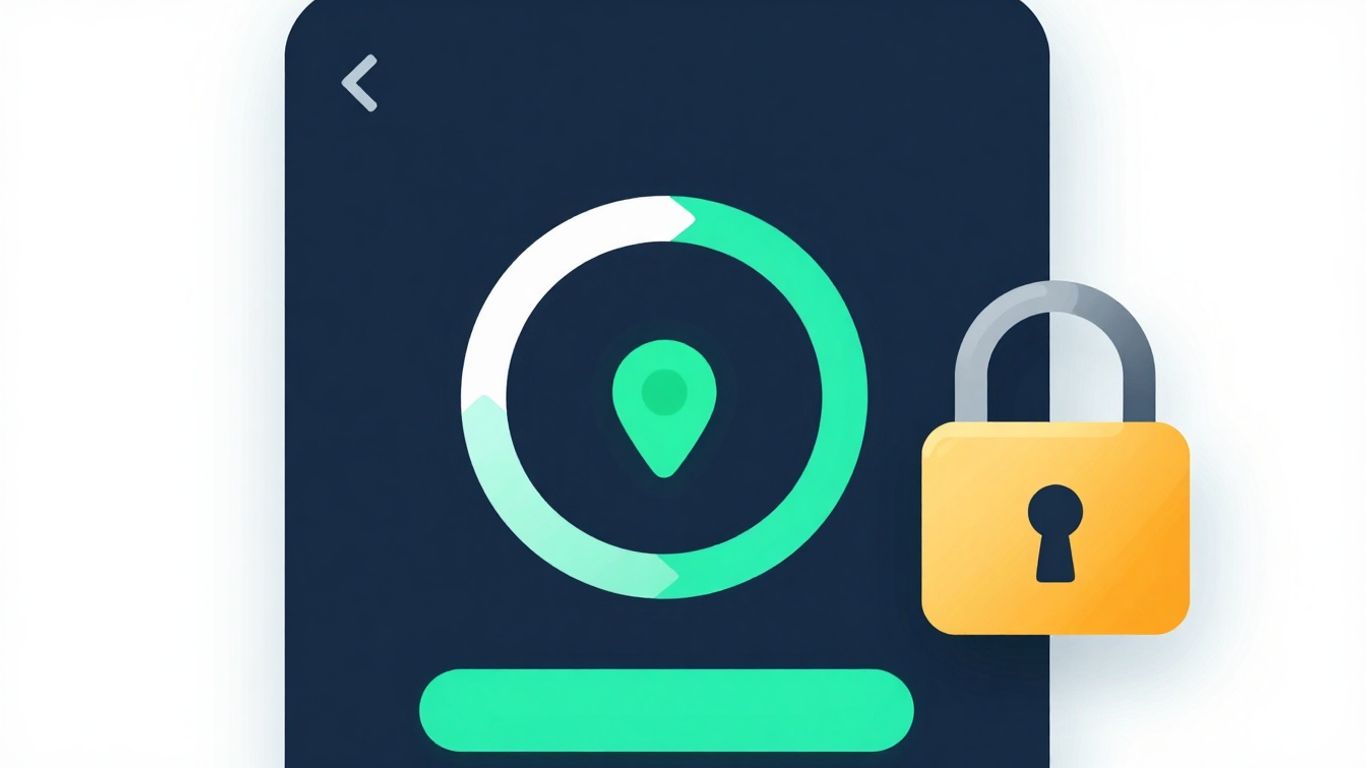[ newsletter ]
Stay ahead of Web3 threats—subscribe to our newsletter for the latest in blockchain security insights and updates.
Thank you! Your submission has been received!
Oops! Something went wrong. Please try again.
Explore the best dexscreener alternative tools for 2025. Discover DexTools, Poocoin, Dex.guru, and more for advanced DeFi market analysis.





Decentralized exchanges, or DEXs, are a big deal in crypto these days. They let you trade directly from your wallet, which is pretty cool for security and control. But keeping up with all the action across different blockchains and trading pairs can be a headache. DEX Screener is a popular tool for this, giving you real-time market data. However, it's not the only game in town. Different traders need different things, whether it's fancier analysis tools, better support for certain networks, or just an easier-to-use interface. That's why we're looking at some top DEX screener alternatives for 2025 that might be a better fit for your trading style.
DexTools is a pretty solid option if you're looking for something beyond the usual DEX screener. It's been around for a while and packs a good punch when it comes to market analysis tools. Think real-time data, but also a deeper dive into what's happening across different blockchains like Ethereum, BSC, and Polygon.
What really sets DexTools apart for me are its charting capabilities. You can actually add technical indicators, which is a big step up if you're into that kind of analysis. Plus, they have this social sentiment feature that tries to give you a read on what the market mood is, which can be interesting for predicting price moves. It also lets you keep an eye on wallet transactions, which is handy.
However, it's not all free. To get the most out of it, like tracking wallets or getting premium notifications, you'll need to subscribe. It feels like DexTools is really geared towards the more experienced traders who want those advanced analytics. If you're just starting out, the interface might feel a bit much, but for those who know their way around, it's a powerful tool.
Here's a quick look at some of its features:
While DexTools offers a lot for serious traders, it's worth noting that some of the really useful features are locked behind a paywall. This means you might need to budget for it if you want the full experience.
Poocoin is a platform that really focuses on the Binance Smart Chain (BSC). If you're trading tokens on BSC, this is one of the tools you'll probably come across. It gives you live prices and lets you look at wallets, which is pretty handy for tracking big trades or seeing what might be moving the market. They also track liquidity, which is important for understanding how easy it is to buy or sell a token without messing up the price too much.
Poocoin's main strength is its deep dive into BSC, but that's also its limitation. It doesn't cover other blockchains like Ethereum or Polygon, so if you're spread out across different networks, you'll need other tools. The interface is functional, but it's not as slick as some of the bigger players out there. Still, for anyone heavily involved in the BSC ecosystem, Poocoin is a solid choice for getting specific data.
Here's a quick look at what it offers:
While Poocoin might not have the broadest blockchain coverage, its dedicated focus on the Binance Smart Chain makes it a go-to resource for traders who primarily operate within that specific crypto environment. It provides the granular data needed for informed decisions on BSC.
Dex.guru is a pretty solid option if you're looking to keep tabs on what's happening across different decentralized exchanges. It acts as both an aggregator and an analytics platform, which is handy. You can check out the most active trading pools on popular DEXs like Uniswap, PancakeSwap, and SushiSwap, all from one spot. This means you can get a feel for current trends and how much money is flowing into different pools, helping you make smarter trading choices.
What really stands out is how it lists actively traded tokens. You get quick access to prices, liquidity information, and supply details. It’s a good way to see which tokens are getting attention across various DEXs.
But Dex.guru isn't just about looking at data; you can actually trade tokens directly through it. Its aggregation service lets you make trades on multiple DEXs without having to switch between different interfaces. It simplifies the whole process.
Dex.guru makes it easier to track token activity and trade across different decentralized exchanges, all within a single platform. It’s designed to give you a clearer picture of the market without too much fuss.
Here’s a quick look at what it offers:
Geckoterminal, a project from the folks behind CoinGecko, is a pretty straightforward tool for checking out decentralized exchange activity. It came out in 2021 and basically gives you a look at crypto prices, trading volumes, and liquidity across different blockchains. If you're new to this whole DEX tracking thing, Geckoterminal is a good place to start because it's not overly complicated.
It covers a bunch of blockchains and updates trading data pretty quickly. You can see token prices, how much is being traded, and how much liquidity is in the pools. While it doesn't have super fancy charting tools like some other platforms, it gets the basic job done without making your head spin. It’s a solid option for getting essential market information without a steep learning curve.
Geckoterminal is completely free to use, which is a big plus. You don't have to pay anything to access its features, making it available to everyone, no matter their budget.
Here’s a quick look at what it offers:
If you're looking for a simple way to keep tabs on DEX markets without getting bogged down in complex features, Geckoterminal is worth checking out.
Jupiter is a pretty interesting platform, especially if you're into the Solana ecosystem. It's not just a simple price tracker; it's more of a full-blown trading platform that also gives you access to a lot of data. Think of it as a place where you can actually execute trades, but with a lot of tools to help you figure out what to do.
What makes Jupiter stand out is its focus on Solana. If you're trading tokens on Solana, this is likely one of the first places you'll want to check. It aggregates liquidity from various sources, which means you can often get better prices than you might elsewhere. It's got a clean interface, which is a nice change of pace from some of the more cluttered sites out there.
Here's a quick look at what it offers:
It's a tool that's really built for active traders who want more control and better execution on Solana. While it's free to use, the real value comes from the trading tools and the data it provides to help you make smarter decisions. It's definitely a platform worth exploring if you're serious about trading on Solana.
Jupiter aims to be a central hub for trading on Solana, offering more than just price charts. It's about providing the infrastructure for efficient and informed trading within that specific blockchain environment.
Birdeye.so is a platform that pulls data straight from the blockchain, processing it in real-time so you can get a handle on market trends. It's built for crypto traders and anyone interested in the market. They aim to give users an edge by providing clear, data-driven insights.
If you're looking to get more out of your crypto trading, Birdeye offers a few ways to do that:
They also have a feature that lets you launch and trade new tokens, with a system where liquidity is added and then burned when a token hits a certain market cap. This is meant to help keep the ecosystem healthy.
The platform's focus is on making blockchain data understandable and useful for making trading decisions. It's about giving you the information you need without making it overly complicated.

Solscan is a pretty straightforward tool if you're looking to get a handle on what's happening on the Solana blockchain. It's basically a data analytics platform that gives you real-time information. Think of it as a way to see transactions, token details, and general activity without needing to be a blockchain wizard yourself. It’s a free service, which is always a plus when you’re just starting out or trying to keep costs down.
What you can do with Solscan:
It’s not as flashy as some other platforms, but it gets the job done for basic on-chain data. If you're specifically interested in the Solana ecosystem, Solscan is a good place to start your research. It’s a solid option for keeping tabs on the Solana network without a lot of fuss.
DefiLlama is a really solid place to get a big picture of what's happening in the decentralized finance world. It tracks a ton of different blockchains and shows you which ones are growing and which ones might be slowing down. You can see stuff like how much money is locked up in different DeFi protocols (that's the TVL), what kind of interest rates people are getting, and even how much money projects are raising. It's pretty good at giving you that overall view.
It’s also great for seeing how different sectors within DeFi are performing. Think of it like a dashboard for the entire crypto finance space. You can find data on protocols, airdrops, different chains, and even things like oracles and yields. Most of the information is free, which is a big plus, and the site is pretty easy to use, even if you're just starting out in DeFi.
While DefiLlama is fantastic for a broad overview, it might not give you the super-detailed trading pair information you'd find on some other DEX screeners. It's more about the big trends and overall health of the DeFi ecosystem.
Here's a quick look at what it offers:
Defined.fi is a pretty interesting platform if you're trying to keep tabs on a lot of different crypto stuff. It lets you track tokens across more than 48 blockchains, which is a lot. You can see recent transactions, price charts, and even how many unique buyers and sellers are involved over a certain period. It's designed to help you find new tokens that might actually grow, by letting you set a minimum liquidity level to filter out the noise.
What's cool is that it doesn't just stick to tokens; it also covers NFTs across various blockchains. This makes it a more rounded tool for people who are into different parts of the crypto market. They also have an API that developers can use to build their own tools, which could lead to some neat new applications down the line.
The platform aims to be a central hub for DeFi data, making it easier for traders to discover new assets and for data enthusiasts to analyze activity across different chains. It also includes NFT tracking, which is a nice bonus.
Here’s a quick look at what it offers:
Parsec.finance is a platform that really digs into on-chain data for the decentralized finance world. If you're someone who likes to see the nitty-gritty details of DeFi, this is definitely a place to check out. They give you access to stuff like how much liquidity is in different trading pools, the history of NFT prices, and even how lending rates have changed over time. What's cool about Parsec is how much you can tweak the dashboard. You get to pick exactly what data matters most to your trading style, which makes it feel pretty personal.
They have a free plan, which is pretty good, but if you're really serious about this, you might want to look at their paid options. These unlock even more advanced features. The paid plans start at $60 a month, and they have a bigger "Team" plan for $500 monthly. It’s a solid tool for getting a better handle on what’s happening in DeFi.
Parsec lets you build your own view of the market. You can add and arrange over 100 different data components, giving you a unique perspective on on-chain activity. It’s all about making the data work for you.
Parsec also has an explorer tool. Think of it like other blockchain explorers, but with added context and visuals that make sense for whatever you're looking at, whether it's a transaction, an address, or a block. It’s a more user-friendly way to sift through chain data. You can sign up to customize your dashboard or even book a demo to see it in action. For anyone serious about on-chain analysis, Parsec.finance is a platform worth exploring DeFi data platform.
DexCheck is a platform that gives you a good look at decentralized crypto exchanges and transactions happening on the blockchain. It’s got some neat features, including a way to track crypto "whales" – those big players moving a lot of coins. You can see what they're buying and selling across different blockchains, which can be pretty interesting.
What’s also cool is that DexCheck lets you keep an eye on the traders who are doing really well on these decentralized exchanges. They figure this out by looking at how much profit traders are actually making. This can help you spot addresses that might be worth following yourself.
DexCheck aims to provide a clear view of decentralized trading activity, helping users understand market movements by observing the actions of significant market participants and successful traders.

DeFi Pulse is a go-to spot for understanding the overall health of the decentralized finance world. It’s not so much about tracking individual trades like some other screeners, but more about getting the big picture. Think of it as a dashboard for the entire DeFi ecosystem.
What it does well is show you how much money is locked up in different DeFi protocols. This is often called Total Value Locked, or TVL. Seeing which protocols have the most TVL can tell you where the action is.
It’s a pretty straightforward platform, making it easy to see how DeFi is doing as a whole. If you're trying to get a feel for the market without getting lost in the weeds of every single transaction, DeFi Pulse is a solid choice. It helps you see the forest, not just the trees.
DeFi Pulse is a good place to start if you want to understand the general direction of decentralized finance and which sectors are attracting the most capital. It simplifies complex data into understandable metrics.
While it gives a great overview, for more granular trading data, you might want to look at tools like DexCheck.ai for specific token analytics.
Tired of bouncing between different sites to get your DeFi data? DexView aims to pull a lot of that information into one spot. It's built to give you a look at various decentralized exchanges and tokens without making you hunt everywhere. Think of it as a central hub for keeping tabs on what's happening in the DeFi world.
DexView brings together data on new DeFi protocols, how tokens are performing, and details about liquidity pools. It's designed to be pretty straightforward to use, which is a big plus when you're trying to track a lot of different assets. You can set up your own dashboards too, so the information you see is what matters most to you. This platform is really about simplifying how you access and analyze DeFi market information.
Here’s a quick look at what you can find:
It’s a tool that tries to make staying informed a bit easier, especially if you're active in the fast-moving crypto markets. For anyone looking to get a better handle on the DeFi landscape, checking out tools like this DEX screener can be a good move.
Uniswap Info is the official analytics platform specifically for the Uniswap decentralized exchange. It's a straightforward tool that gives you real-time data on all the trading pairs, liquidity pools, and price changes happening directly on Uniswap.
Its main strength is its direct connection to Uniswap, one of the biggest DEXs out there, making the data very reliable for that specific ecosystem. The interface is pretty clean, so it's easy to keep an eye on trading activity and spot trends within Uniswap.
However, Uniswap Info has a pretty narrow focus. It only shows data for Uniswap pairs. If you're trading on other DEXs or different blockchains, you'll need to use other tools to get that information. It’s great if you’re all-in on Uniswap, but not so much if you want a broader market view.
Here’s a quick look at what it offers:
While it's a solid choice for Uniswap-specific analysis, remember its limitations if your trading strategy involves multiple decentralized exchanges.
Apespace is a platform that really tries to give users a leg up when it comes to finding new tokens. It's known for offering early access to token launches and investment chances that aren't usually out in the open. Think of it as getting a peek behind the curtain at promising projects before most people even know they exist. This can be a big deal if you're looking to get in on the ground floor.
They also put a good amount of effort into making the site easy to use. Even if you're pretty new to the crypto scene, you shouldn't have too much trouble figuring out how to track your investments or set up alerts. Security is another thing they talk about a lot, which is always good to hear when you're dealing with digital assets.
Apespace aims to connect projects with investors, providing tools for fundraising and managing tokens. It supports various blockchains and focuses on being transparent and fair.
While it's not strictly a "screener" in the same way some others are, its focus on early access and project discovery makes it a solid alternative for those wanting to find the next big thing. It's built on the idea of making things accessible and secure for everyone involved.
So, we've looked at a few different tools that can help you track the decentralized exchange markets. While DEX Screener is a popular choice, it's clear there are other options out there that might fit your trading style better. Whether you're a seasoned trader looking for deep analytics like DexTools offers, or just starting out and prefer something simpler like Geckoterminal, there's a tool for you. Even if you're focused on a specific network like Solana, platforms like Jupiter or Birdeye can give you more specialized data. Picking the right tool really comes down to what you need and how you trade. Take some time to check them out and see which one helps you make better decisions in the fast-moving world of DeFi.
DEXs, or Decentralized Exchanges, let you trade crypto directly from your wallet without a middleman. DEX screeners are tools that help you watch what's happening on these exchanges, like prices and trading activity, across many different crypto networks.
While DEX Screener is popular, some traders need more advanced tools. Others might want simpler features or better coverage for specific crypto networks that DEX Screener doesn't focus on as much.
These tools show you which coins are being traded a lot or have prices going up fast. By looking at this real-time data and charts, you can spot coins that are becoming popular quickly.
Yes, many DEX screeners, including DEX Screener itself, have mobile apps. This means you can check prices and trading info on your phone wherever you go.
Locked liquidity means the money put into a trading pair on a DEX is locked up for a certain time. This is good because it makes it harder for the people who created the coin to suddenly take all the money away, which is called a 'rug pull'.
You can use them to find coins that are getting popular, check if they have a lot of trading activity, and look at price charts for good times to buy or sell. Watching big trades can also give you clues about where the price might go.


